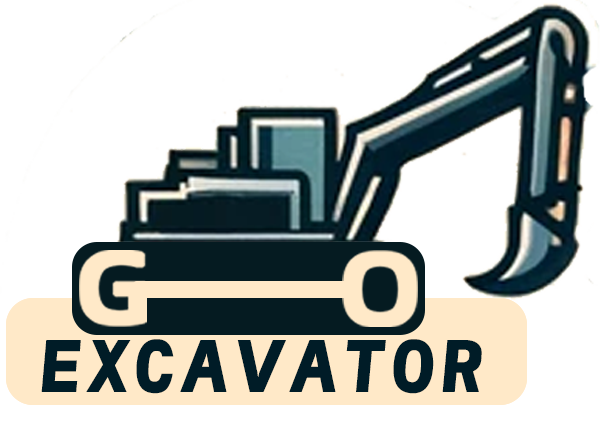
Purchasing a second-hand excavator can be a cost-effective solution for your construction or landscaping needs. However, buying used machinery comes with its own set of challenges and considerations. This comprehensive guide will walk you through everything you need to know to make an informed decision, ensuring that you invest wisely and avoid common pitfalls.
Understanding Your Needs
Before diving into the market, it’s crucial to understand exactly what you need from an excavator.
Determine the Excavator Type
Excavators come in various types and sizes, including mini, standard, and large excavators. Identify the type that suits your project requirements.
- Mini Excavators: Ideal for small projects and limited spaces.
- Standard Excavators: Suitable for general construction work.
- Large Excavators: Best for heavy-duty industrial tasks.
Define the Work Environment
Consider the terrain and conditions where the excavator will operate.
- Soil Type: Rocky, sandy, or clay soil may require different attachments.
- Climate: Extreme temperatures can affect machinery performance.
- Space Constraints: Tight areas may necessitate a smaller machine.
Research the Market
An informed buyer is a smart buyer. Research is key to finding the best deals.
Compare Prices
Look at listings from various sources to get a sense of the market value.
- Online Marketplaces: Websites like Machinery Trader or IronPlanet.
- Local Dealers: Visit dealerships to compare prices and options.
- Auctions: Consider attending equipment auctions for potential bargains.
Identify Reputable Sellers
Choose sellers with good reputations to minimize risks.
- Dealer Reviews: Check online reviews and ratings.
- Certifications: Look for certified pre-owned programs.
- Referrals: Ask industry contacts for recommendations.
Inspection Checklist
Thoroughly inspect the excavator to assess its condition.
Visual Inspection
Begin with a general look-over of the machine.
Exterior Condition
- Paint and Rust: Check for rust spots or repainted areas that may hide damage.
- Welding Marks: Indicate past repairs which could be a red flag.
Signs of Wear and Tear
- Bucket and Attachments: Look for excessive wear or cracks.
- Tracks and Tires: Inspect for uneven wear or damage.
Mechanical Inspection
A deeper dive into the machine’s mechanics is essential.
Engine Performance
- Start-Up: The engine should start smoothly without excessive smoke.
- Leaks: Check for oil, coolant, or fuel leaks.
Hydraulic System
- Hoses and Connections: Inspect for cracks or leaks.
- Cylinder Condition: Look for dents or scratches.
Undercarriage Condition
- Rollers and Idlers: Ensure they are in good working order.
- Sprockets: Check for worn teeth.
Operational Test
Operate the excavator to test its functionality.
Controls and Functions
- Joystick Response: Should be smooth and precise.
- Attachment Operation: Test all attachments for proper function.
Noise and Vibrations
- Unusual Sounds: Listen for grinding or knocking noises.
- Vibrations: Excessive vibration may indicate mechanical issues.

Review Maintenance Records
Documentation provides insight into how well the machine was cared for.
Service History
- Regular Maintenance: Confirm routine services were performed.
- Oil Changes: Frequent oil changes indicate good upkeep.
Repair Records
- Major Repairs: Be cautious of machines with a history of significant repairs.
- Replacement Parts: Check if OEM parts were used.
Legal Considerations
Protect yourself legally when purchasing.
Verify Ownership
- Title and Registration: Ensure the seller has legal ownership.
- VIN Check: Use the Vehicle Identification Number to check history.
Check for Liens
- Financial Claims: Verify there are no outstanding loans on the equipment.
- Legal Disputes: Ensure the machine isn’t involved in any legal issues.
Negotiating the Deal
Once you’ve found the right excavator, it’s time to negotiate.
Assessing Fair Market Value
- Market Research: Use your earlier research to determine a fair price.
- Condition Adjustments: Factor in any repairs that may be needed.
Closing the Purchase
- Payment Terms: Agree on payment methods and schedules.
- Contract: Get everything in writing to protect both parties.
Buying a second-hand excavator requires careful consideration and due diligence. By understanding your needs, thoroughly inspecting the machine, reviewing maintenance records, and ensuring all legal aspects are covered, you can make a smart investment that will serve your operational needs effectively.
A Comprehensive Guide to Buying a Excavator Second Hand
Purchasing a second-hand excavator can be a cost-effective solution for your construction or landscaping needs. However, buying used machinery comes with its own set of challenges and considerations. This comprehensive guide will walk you through [...]
Comprehensive Guide to Hyundai Mini Excavators: Features and Prices
Mini excavators have become indispensable tools in the construction and landscaping industries. Hyundai Construction Equipment, a global leader in heavy machinery, offers a range of mini excavators known for their reliability, efficiency, and advanced features. [...]
How to Extend the Service Life of Excavator Parts
Excavators are indispensable machines in the construction and mining industries. They perform heavy-duty tasks that demand robust components and meticulous maintenance. Extending the service life of excavator parts not only reduces operational costs but enhances [...]
Kymron Excavators: Innovative, Sustainable Construction Machinery
In the dynamic world of construction and heavy machinery, Kymron has emerged as a game-changer. Specializing in advanced excavator technology, Kymron is redefining industry standards with its commitment to innovation, efficiency, and sustainability. Company Overview [...]
Bulldozer vs. Wheeled Excavator: Which Machine is Better for Moving Soil?
Moving soil is a fundamental task in construction, landscaping, and earthmoving projects. Choosing the right machinery for the job can significantly impact efficiency, cost, and project timelines. Two of the most commonly used machines for [...]
Why Are Small Excavators Favored? A Comprehensive Guide
In the world of construction and landscaping, efficiency and versatility are key. Among the myriad of machinery available, small excavators have risen in popularity. But what makes them so favored? Introduction to Small Excavators Small [...]




